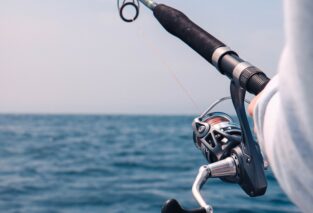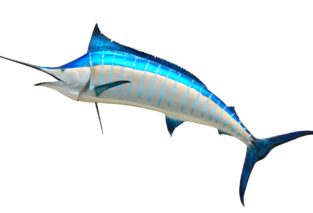Imagine yourself on a crisp winter morning, surrounded by untouched snow and the soothing sound of silence. As you contemplate whether or not to venture out into the chilly January air, a thought crosses your mind: can you go fishing in January? If you’re a passionate angler or someone looking to try their hand at the sport, this article is tailor-made for you. Packed with valuable insights, Tips, and techniques, “Can You Go Fishing in January: Cold-Weather Fishing Tips and Techniques” will arm you with everything you need to know to make the most of your fishing adventures during the winter months. From choosing the right gear to mastering effective cold-weather fishing strategies, this guide will help you stay warm and reel in the catch of a lifetime.

Best Locations for Cold-Weather Fishing
When it comes to cold-weather fishing, the first step is to identify nearby fishing spots that are ideal for this time of year. While some fishing spots may be off-limits due to freezing temperatures and icy conditions, there are still plenty of options available.
One of the most popular and productive methods of cold-weather fishing is ice fishing on frozen lakes. This unique and thrilling experience allows you to fish through a hole in the ice, right above the fish’s habitat. However, it’s important to ensure that the ice is thick enough to support your weight before venturing out onto the frozen lake.
Choosing the Right Gear
Before you head out for a day of cold-weather fishing, it’s essential to select the right gear to maximize your chances of success. Here are a few key considerations:
Selecting the proper fishing rod and reel
When choosing a fishing rod and reel for cold-weather fishing, it’s important to opt for equipment that can withstand the freezing temperatures. Look for models made from durable materials that won’t become brittle or break in the cold. Additionally, consider using a shorter rod to allow for better control and maneuverability when fishing through the ice.
Picking the right line and tackle
In cold weather, fish may be less aggressive and not as willing to bite, so choosing the right line and tackle is essential. A lighter line, such as monofilament or fluorocarbon, can be less visible to fish and increase your chances of getting a bite. Additionally, using smaller hooks and lures can help entice bites from potentially wary fish.
Choosing appropriate clothing and accessories
Fishing in cold weather requires proper attire to stay warm and comfortable throughout your outing. Layering is key, as it allows you to adjust your clothing based on your activity level and the weather conditions. A waterproof and wind-resistant outer layer is also important to protect you from any rain or snow that may be present. Don’t forget to wear insulated gloves, a warm hat, and waterproof boots to keep your extremities warm and dry.
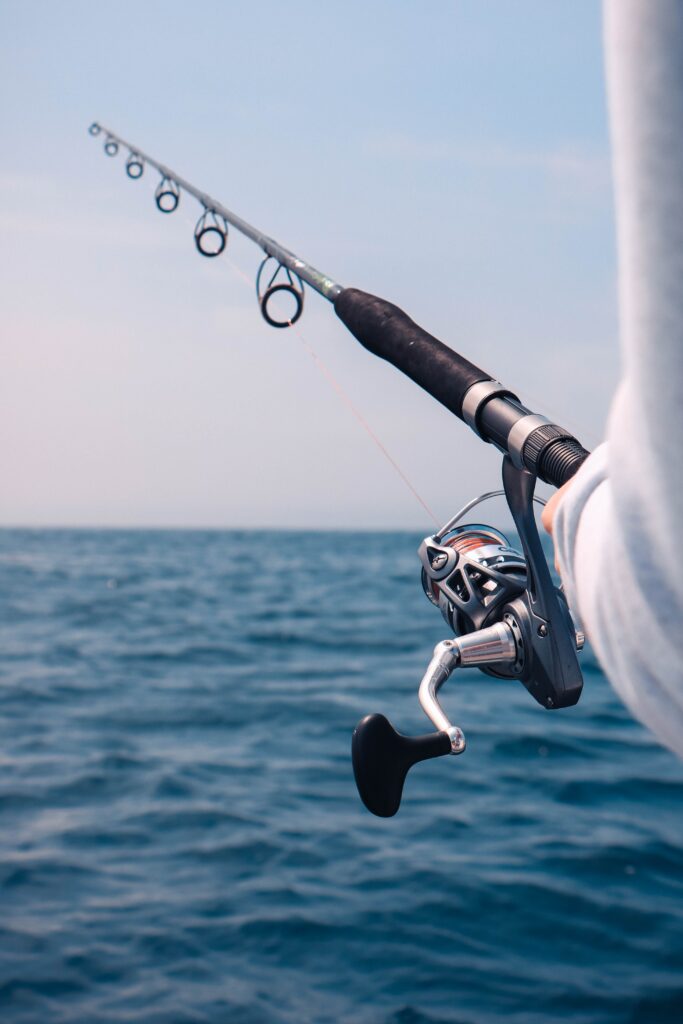
Bait and Lure Selection
When it comes to bait and lure selection for cold-weather fishing, there are a few different approaches you can take:
Using live bait in cold weather
Live bait, such as minnows or worms, can be highly effective in colder temperatures. Fish that are less active in the cold may still be tempted by the movement of live bait, making it a great choice for increasing your chances of catching fish. Keep in mind that the slower metabolism of fish in cold water means they may not be as hungry or willing to bite, so live bait can be a more enticing option.
Opting for artificial lures
Artificial lures, such as jigs or spoons, can also be successful in cold-weather fishing. These lures can mimic the appearance and movement of natural prey, attracting fish even in colder temperatures. When selecting artificial lures, opt for smaller sizes and natural colors to imitate the prey that fish are likely to encounter in their winter habitats.
Identifying the best types of bait for different fish species
Different fish species may have specific preferences when it comes to bait and lures, even in cold weather. For example, trout may be more inclined to bite on small insects or baitfish imitations, while bass may be more likely to strike at larger, more aggressive lures. Researching the feeding habits and preferences of the specific fish species you are targeting can help you make more informed decisions when selecting bait and lures.
Timing and Weather Considerations
Understanding fish behavior in cold weather and adjusting your fishing strategies accordingly can significantly improve your chances of success. Here are some important timing and weather considerations to keep in mind:
Understanding fish behavior in cold weather
In cold weather, fish tend to be less active and seek out deeper, warmer waters. They may also congregate near structure or areas with denser vegetation. Understanding these patterns and adjusting your fishing location accordingly can increase your chances of finding the fish and getting bites.
Determining the best time of day to fish
While fish can be caught at any time of day, certain periods may be more productive in cold weather. Many anglers find that early morning or late afternoon fishing produces the best results, as the water temperature may be slightly higher during these times. However, it’s important to monitor the conditions and adjust your fishing times based on the specific weather patterns and fish behavior in your area.
Considering weather conditions and how they impact fishing
Weather conditions can greatly influence the success of your cold-weather fishing expedition. Overcast days or light snow can actually improve fishing conditions, as fish may feel more comfortable and be more inclined to venture out in these conditions. On the other hand, clear skies and bright sunlight may result in fish being more cautious and less likely to bite. Be sure to check the weather forecast and plan your fishing trips accordingly to maximize your chances of success.
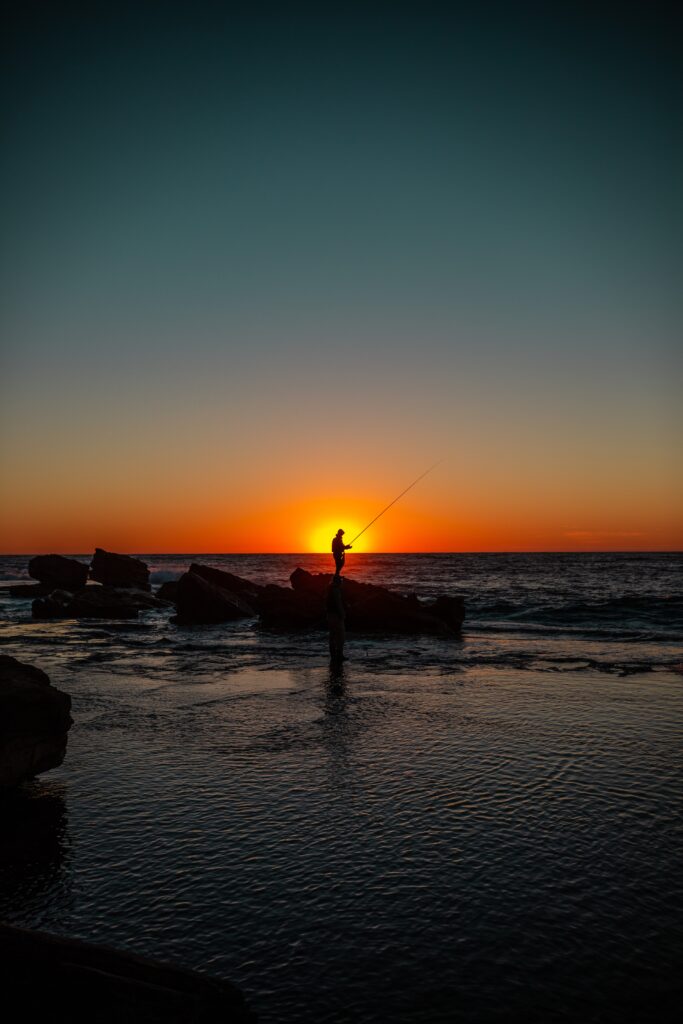
Techniques for Cold-Weather Fishing
Cold-weather fishing requires specific techniques to entice bites from less active fish. Here are a few strategies that can be effective:
Slow and steady retrieval methods
In colder water, fish tend to move and feed at a slower pace. This means that using slow and steady retrieval methods can be more successful in attracting their attention. Avoid rapid or jerky movements when retrieving your bait or lure and instead focus on maintaining a consistent and deliberate pace.
Using finesse techniques to entice bites
Finesse techniques, such as drop shotting or Carolina rigging, can be highly effective in cold-weather fishing. These techniques allow for precise presentations and subtle movements that can entice bites from finicky fish. Use lighter tackle and smaller baits or lures to finesse your way to success in cold weather.
Experimenting with jigging and jigging spoons
Jigging can be an excellent technique for cold-weather fishing, particularly when ice fishing. By jigging your bait or lure up and down in the water column, you can create a realistic movement that can trigger strikes from curious or hungry fish. Jigging spoons are particularly effective in mimicking injured baitfish, making them a go-to choice for many anglers during the winter months.
Ice Fishing Safety Precautions
Ice fishing is an exciting winter activity, but it’s essential to prioritize safety when venturing out onto frozen lakes. Here are some key safety precautions to keep in mind:
Checking ice thickness prior to ice fishing
Before stepping foot on the ice, it’s crucial to check the ice thickness to ensure it can support your weight. At least 4 inches of clear, solid ice is generally considered safe for ice fishing, but it’s important to regularly assess the conditions as ice thickness can vary. Use an ice auger or chisel to make test holes and measure the ice thickness before proceeding.
Using proper ice fishing equipment and gear
When ice fishing, it’s important to use specialized equipment designed for this activity. Ice fishing rods are shorter and more robust than traditional fishing rods, allowing for easier handling while wearing gloves or mittens. Ice fishing shelters or tents can also provide protection from cold wind and precipitation, enhancing both safety and comfort.
Knowing how to respond to emergencies on the ice
It’s essential to be prepared for emergencies while ice fishing. Carry safety equipment such as ice picks, a throw rope, and a flotation device in case of accidental immersion or someone falling through the ice. Familiarize yourself with self-rescue techniques and always fish with a buddy for added safety.
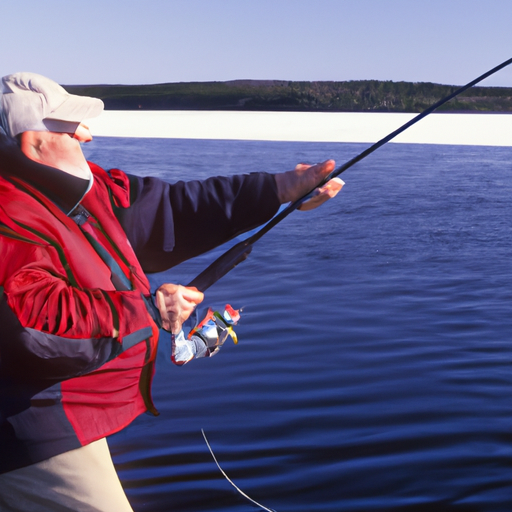
Tips for Catching Different Fish Species
Different fish species may exhibit unique behavior and preferences when it comes to cold-weather fishing. Here are some tips to enhance your chances of catching specific species:
Strategies for catching trout in cold weather
Trout are known for their preference for colder waters, making them a popular target for anglers in winter. When targeting trout, consider using small artificial lures or live bait imitations. Trout may also be found near oxygen-rich areas, such as inflows or deep pockets, so focus your efforts in these locations.
Tactics for targeting winter bass
While bass may be less active in cold weather, they can still be caught with the right approach. Slow down your retrieval speed and consider using twitching or pausing techniques to entice bites. Focus on areas with structure or cover, such as fallen trees or rock formations, as bass may seek shelter in these spots.
Tips for landing panfish in winter
Panfish, such as bluegill or crappie, are often abundant and active in cold weather. To increase your chances of landing panfish, use smaller baits or lures with finesse techniques. Panfish tend to congregate in large schools, so once you locate them, you can enjoy a productive day of fishing.
Caring for Your Gear in Cold Weather
Cold weather can be tough on fishing gear, so it’s important to take proper care to ensure its longevity. Consider the following tips for caring for your gear in cold weather:
Protecting fishing lines from freezing
Cold temperatures can cause fishing lines to become stiff and even freeze, making them more prone to breaking. Before heading out for a fishing trip, soak your fishing lines in a bucket of water to remove any ice build-up and make them more flexible. Additionally, using line lubricants specifically designed for cold weather can help prevent freezing and maintain the integrity of your lines.
Maintaining and storing your fishing equipment
After a day of fishing in cold weather, it’s important to properly clean and dry your fishing equipment to prevent damage. Rinse off any saltwater or debris from your rods, reels, and other gear, and allow them to air dry completely before storing them. Storing your equipment in a dry and temperature-controlled environment can also help prevent damage from freezing temperatures.
Preventing damage to rods and reels due to freezing temperatures
In freezing temperatures, water inside the guides and reels of fishing rods can expand and cause damage if not properly addressed. To prevent this, thoroughly dry your rods and reels after each fishing trip and consider using rod socks or covers to protect them from moisture and freezing temperatures when not in use. Applying reel lubricants or silicone sprays to the moving parts of your reels can also help prevent freezing and extend their lifespan.
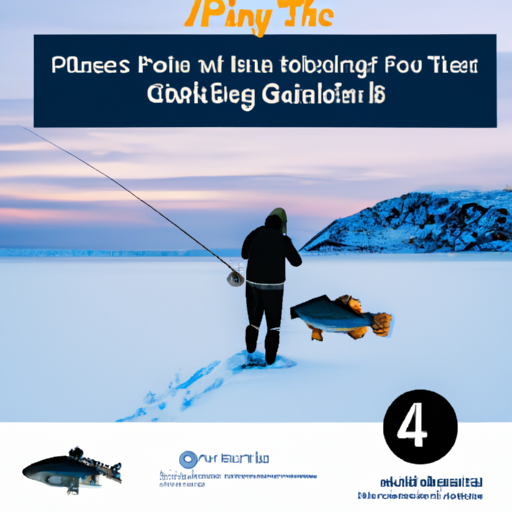
Additional Cold-Weather Fishing Tips
Here are a few additional tips to enhance your cold-weather fishing experience:
Using scent to attract fish
In cold weather, fish may rely more on their sense of smell to locate food. Adding scent attractants to your baits or lures can increase their effectiveness by appealing to a fish’s olfactory senses. Consider using natural scents, such as garlic or anise oil, which are known to be attractive to many fish species.
Employing stealth tactics for wary fish
In cold weather, fish can be more cautious and easily spooked. Practicing stealthy approaches, such as being quiet, minimizing movement, and avoiding casting shadows, can increase your chances of getting close to fish without alarming them. Approaching fishing spots from an upwind or downwind position can also help prevent your scent from alerting nearby fish.
Keeping an open mind and adjusting your approach
Cold-weather fishing can be challenging and unpredictable, so it’s important to keep an open mind and be willing to adapt your approach. If a particular technique or spot isn’t producing results, don’t be afraid to switch things up by trying different baits, lures, or locations. The ability to be flexible and willing to experiment can make a significant difference in your overall success.
Final Thoughts and Encouragement
Cold-weather fishing may require more preparation and patience, but it also offers unique challenges and rewards. Embrace the opportunity to explore new fishing techniques, target different fish species, and appreciate the beauty of fishing in a winter landscape. Remember to continually improve your skills and knowledge through practice and research. With the right gear, techniques, and mindset, cold-weather fishing can become a deeply rewarding and enjoyable experience. So bundle up, grab your gear, and get out there to discover the joys of fishing in the winter months!




